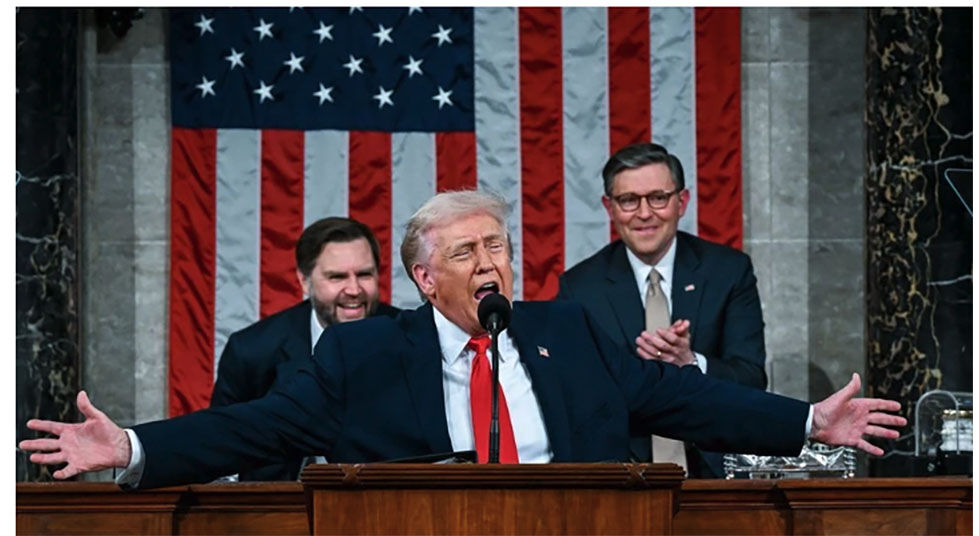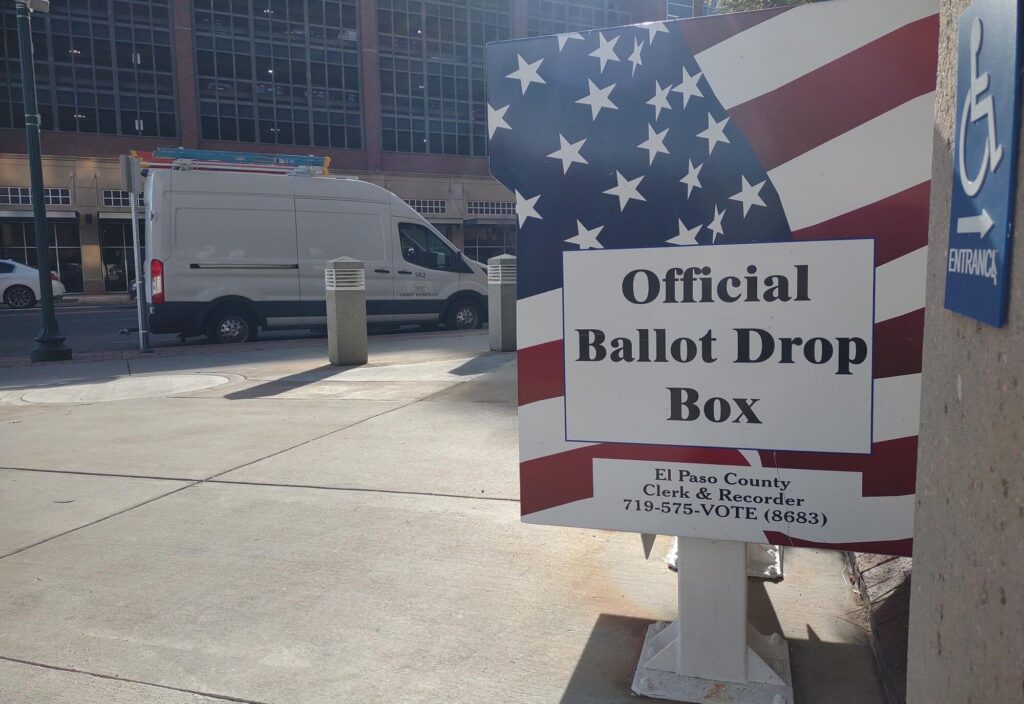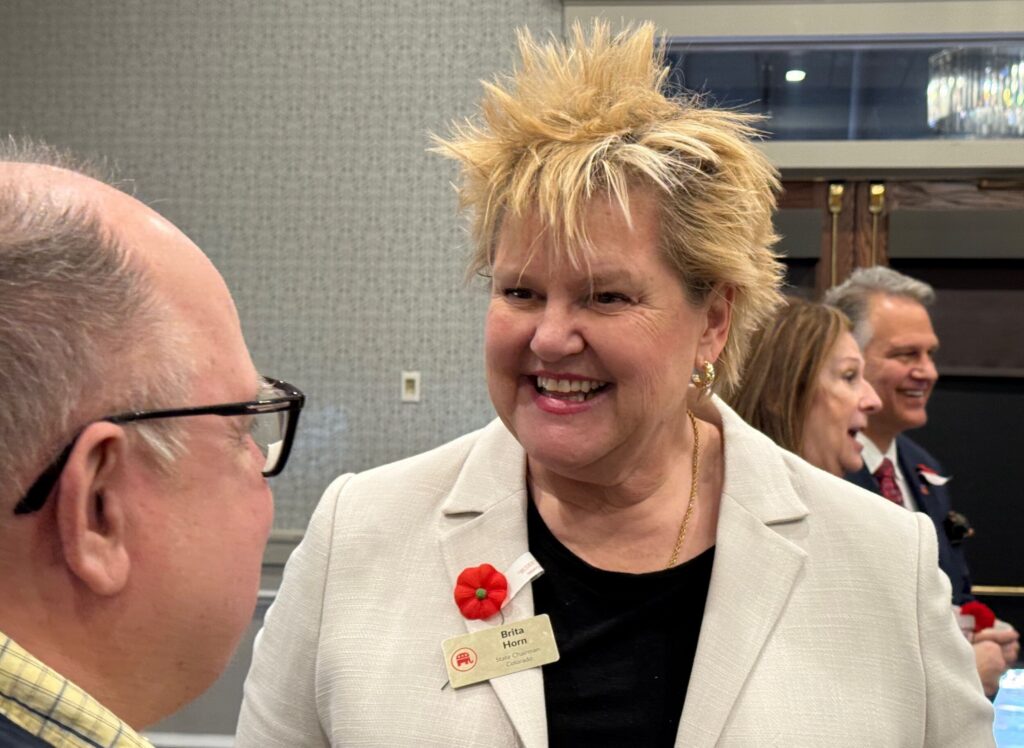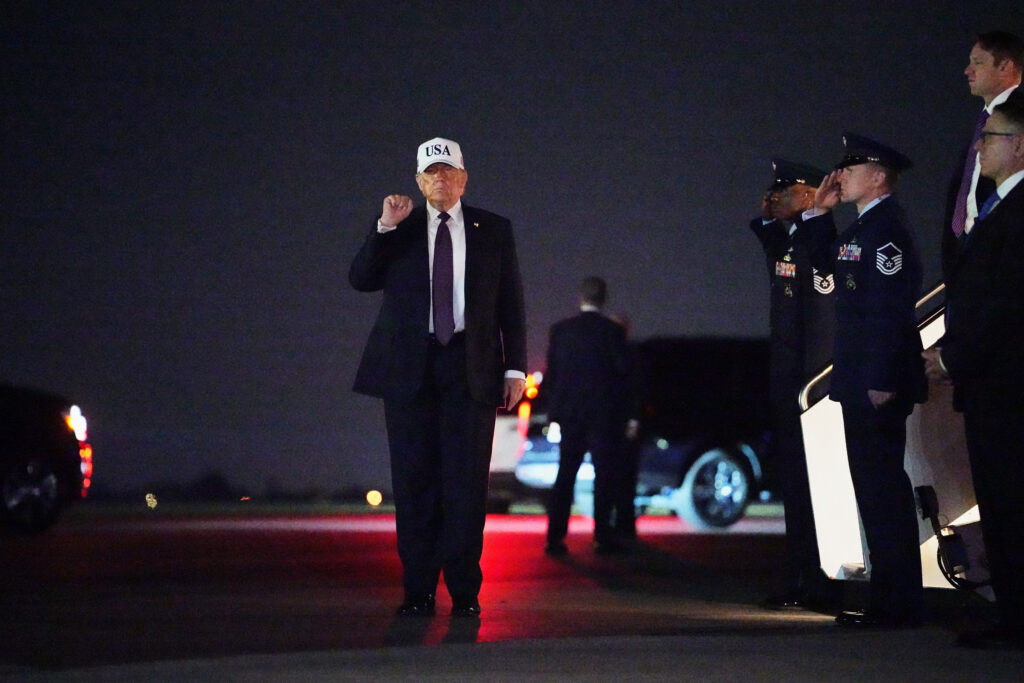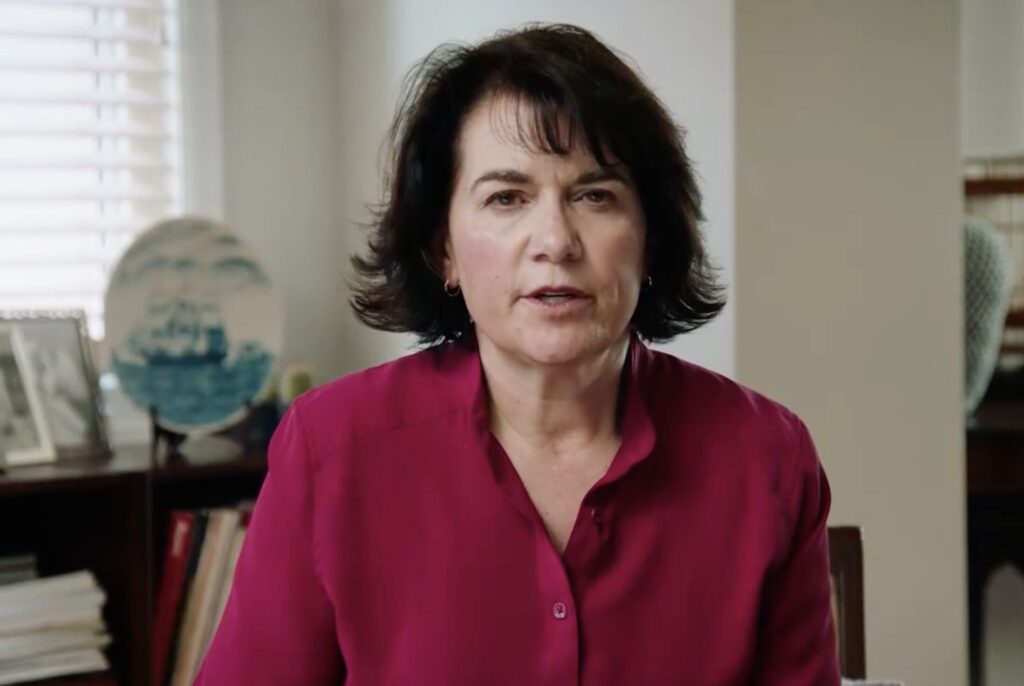Primary elections bill weathers first test in the House
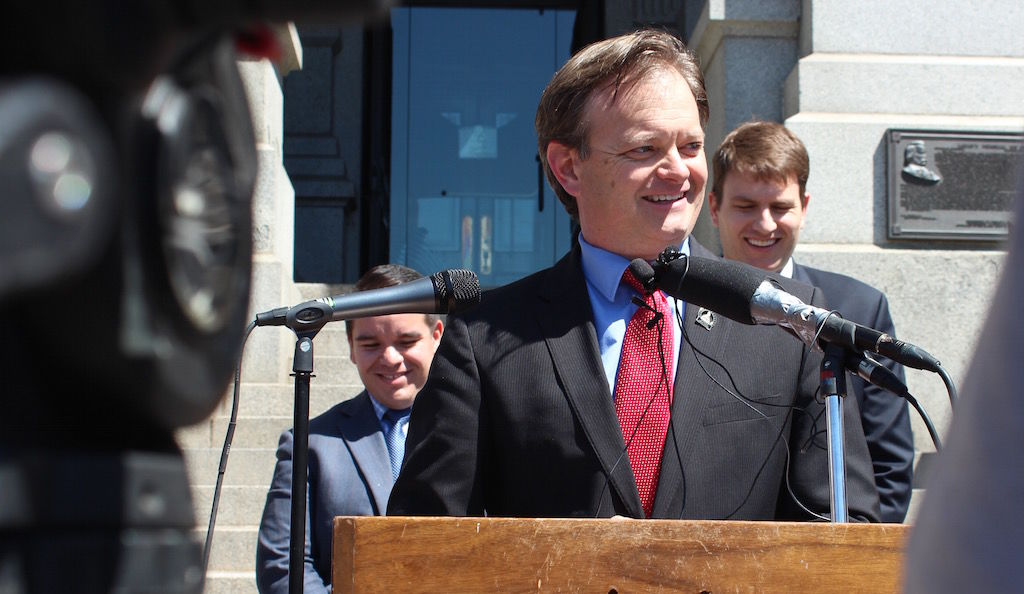
Democrats on the House State Affairs committee voted Monday to advance a bill that would bring presidential primary voting back to Colorado in the wake of wide frustrations with the caucus system voiced by voters this spring.
The hearing was a first hurdle cleared on a long track with time ticking down fast to the end of the race. The sponsors of House Bill 1454 — Reps Dominick Moreno, D-Commerce City, and Tim Dore, R-Elizabeth, and Senate Minority Leader Lucia Guzman, D-Denver — have just 11 working days to move the bill through committee hearings and floor votes in both chambers.
The bill has been in the works for months. It would allow all registered voters in Colorado to cast ballots in a presidential primary, beginning in 2020. Unaffiliated voters — who now outnumber either registered Democrats or Republicans in Colorado — would be able to temporarily register with the party of their choice and vote that party’s primary ballot. Registration for those voters would revert to unaffiliated 30 days after the primary election. The caucus system would remain in place for all state and local races and delegate selection to national party conventions would also continue to be guided by national and state party rules.
The House sponsors and supporters of HB 1454 announced Thursday at a press conference at the Capitol that they were putting the finishing touches on the bill. They explained that part of the motivation for the late bill was to address public outcry in the wake of the caucuses and to head off a primary elections ballot initiative backed mainly by the Denver Chamber of Commerce that they felt would make for clumsy law but that had a genuine chance of making the ballot and winning the support of voters.
On Thursday, drafts of HB 1454 circulated and became the subject of intense Capitol hallway conversation. On Friday, the sponsors formally introduced the bill. Over the weekend, opposition built steadily, mainly among the activist grassroots wing of the state Republican Party and its champions at the Capitol.
‘Not the best process’
So far, the bill pits Republicans against Republicans. Democrats seem to support it as a bloc. State Republican Party Chairman Steve House supports the bill and made the case for it on the record for the committee on Monday. So did Republican Secretary of State Wayne Williams.
“The process we have now is legitimate, but it’s not the best process,” Williams said. “Caucuses work for local races. You visit with the candidates. Candidates knock on doors. News stations don’t cover local races. None of that is true for the presidential races.”
He also pointed out that the bill makes it possible for members of the military and other overseas voters to participate.
“Those people can’t participate in caucuses unless they’re here on caucus night,” he said.
Elena Nunez, executive director of Colorado Common Cause, said that moving to a presidential primary will very likely boost voter participation. She cited statistics that placed Iowa as the site of highest caucus participation at 18.7 percent of registered voters. Whereas the lowest rate of primary election participation, she said, was notched by Louisiana at 18.2 percent. The New Hampshire primary, she said, sees the highest rate of participation, drawing out 52.4 percent of that state’s registered voters.
Jennifer Levin, a disability rights lawyer, said primary elections in Colorado where voters could mark their mail ballots at home, would go a long way toward addressing the barriers thrown up to disabled voters by the caucus system.
“It’s extremely difficult, all of it, the locations, the facilities, the times of day, the poor planning,” she said.
‘Why the rush?’
State Affairs committee member Rep. Justin Everett, R-Littleton, led opposition to the bill.
“Why now?” he said. Why the rush? The next presidential election is in four years. Is this really going to take four years, because government is so inefficient?”
Everett took issue with what he characterized as the closed process through which the bill was drafted.
“It has just been a select few people (consulted),” he said. Why can’t we slow down the process and hold open hearings all across the state and bring in the public?”
John Wren, head of a state political action committee called Save the Caucus, told The Statesman that supporters of the bill have the issue backwards.
“It’s not the system that needs changing. It’s the leaders of the system. It’s bad party leadership that’s the problem,” he said, adding that the way to address administrative incompetence at the top is to elect new party leaders. There’s too much at stake, he said.
“The caucus is the only way ordinary people have a chance of running for office. Otherwise it’s all money. It’s a popularity contest. It’s who can pay for TV… In a caucus system, you can mount a challenge from the floor. It’s a state-wide civics lesson every two years. When you participate in a well-run caucus, you feel like it’s great to be a citizen.”
Wren said that Colorado’s experience with introducing a presidential primary in the 1990s demonstrated that the caucus system degrades as a result.
“I don’t know why the sun comes up every morning, but it does. I don’t know why exactly the presidential primary kills the caucus system, I just know that it does,” he said.
Not all of the state’s county clerks support the bill, either.
Douglas County Clerk Merlin Klotz said adding a presidential primary on top of the municipal and special district elections clerks have to run on even years would be a “catastrophe.”
“As it is, we have municipal elections in February and special district elections in May,” he said. “Add a presidential primary in March and there’s no way we could handle the load. It would be an operational nightmare. Douglas County would need seven more staffers.”
Klotz said that if the Legislature is intent on passing the primary elections bill, they should also pass a corollary bill that would move the municipal and special district elections to odd years.
“The people down there who are so high on a presidential primary are not the people who have to run them,” Klotz said.
Preview of coming attractions
In the end, the five Democrats on the committee voted to send the bill on to the the House Appropriations committee. All four of the Republican members of the committee voted against the bill.
Everett along with Patrick Neville, R-Castle Rock, Steve Humphrey, R-Severance, and Tim Leonard, R-Evergreen, submitted a series of amendments, all of which were voted down or ruled out of order.
During the hearing, Everett and Neville downplayed the threat posed by the ballot initiative.
“I’ve never been one to be bullied by corporate interests and billionaires,” Neville told the bill sponsors. He said he heard a rumor that an out-of-state billionaire was funding the initiative effort. He said he thought lawmakers should take the threat of the ballot initiatives in stride.
John Wren agreed with Neville and with other opposition witnesses that acting under threat makes for bad policy.
“We’ll jump that hurdle when we get to it,” he said, referring to the ballot initiatives. He said he thought the Colorado supreme court likely would find that the Chamber’s initiative violates the “single-subject” rule governing ballot initiatives. “What they’re proposing is outrageous,” he said.
But violating the single-subject rule would be an amateur mistake, and the people behind the primary elections initiatives seem to be very serious and methodical about what they’re doing.
The Denver Chamber and the other “business groups” behind the measure — as Secretary Williams described the initiative backers at Monday’s hearing — would seem to possess the two things that matter most when it comes to passing a ballot initiative in Colorado. They have money and they would seem to enjoy at least a significant measure of public sympathy.
Earlier this year, the groups created two nonprofit organizations to research primary elections, voter habits and election reform. This spring, in the wake of the state’s caucus experience, the groups filed a series of initiatives — initiatives 140,141, 142, 98, 99, which vary slightly — and are in the process of testing which of the proposals would be most attractive to voters. The groups are also wooing bipartisan partners and have hired major Denver-based public relations firm OnSight to run operations for the campaign.
Chamber members know that the ground they are working is especially fertile right now. Members of the public beyond a sliver of activist voters on the right and left generally have little idea how caucuses work. Those who know something about caucuses know that they’re more complicated and time consuming than are primaries.
More to the point, in March, Colorado Democrats learned on the ground that, for many of them, it would take six hours merely to register their support for presidential candidates Bernie Sanders or Hillary Clinton — and that’s if they actually made it into a caucus meeting. Lots of them in Denver, Boulder, Longmont and elsewhere never made it into a building.
Also in March, many caucusing Colorado Republicans learned for the first time that there would be no formal GOP presidential preference poll held in the state, even as one of the most intense Republican presidential primary races was unfolding around the nation. And they learned from the news media in April that Ted Cruz fully swept the caucus voting in the state. To the uninitiated, it seemed as though the party was selling them on the idea that no one in the state supported Donald Trump. How could that be?
At this point, it’s unclear what organizations would line up to mount a serious campaign against the Chamber’s ballot initiative.
Still, everyone at the Capitol remembers that lawmakers last year killed primary elections Senate Bill 287 in a flash. The bill was introduced late, but it included a long list of Republican and Democratic co-sponsors, including members of the leadership in both chambers. It passed out of the Senate State Affairs committee on a Friday and was killed in the Senate Appropriations committee on Monday.
Republicans reportedly weren’t sure whether the state party leadership fully backed the measure and were texting with Chairman House in the minutes before one of the bill cosponsors, Sen. Kevin Grantham, R-Canon City, cast the vote that killed the bill.
This year, everyone at the Capitol knows where Chairman House stands.
“Well, you know how it is down here,” a lobbyist told The Statesman before Monday’s hearing. “We’ll only know if it will pass or fail when it passes or fails.”



